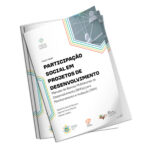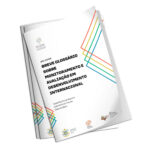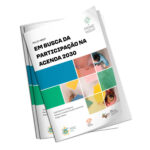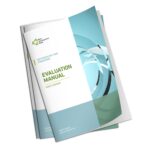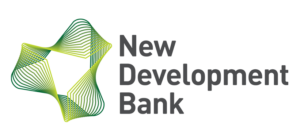PRIME Hub – Participatory and Intersectional Monitoring and Evaluation Hub
PRIME Hub – Participatory and Intersectional Monitoring and Evaluation Hub

The IRI/PUC-Rio and the BRICS Policy Center (BPC) have a history of reflective, questioning, and often critical approaches to various matters of international politics and both national and international public policy agendas. This involves conducting an intersectional analysis, focusing on quality social participation and promoting accessible communication of results and lessons learned. This foundation is based on a solid theoretical tradition, for which IRI is recognized both nationally and internationally, as well as practical engagement with communities and various stakeholders across different fronts in Brazil and abroad. Indeed, we take pride in valuing dialogue and innovation, and we have exceptional researchers who establish themselves in their respective fields while adhering to the common principles of horizontality, accountability, and inclusion.
With the support of the Independent Evaluation Office (IEO) of the New Development Bank (NDB), the BPC is advancing toward integrating monitoring and evaluation thought and practice across all its diverse fields of activity—environment and climate change, energy transition, race and gender, development cooperation, science and technology, cities and inequalities, global health, security and mediation—and consolidating them into a hub that will operate across all research groups: the PRIME – Participatory and Intersectional Monitoring and Evaluation Hub.
PRIME is therefore launched with the expertise of the many specialists already present at BPC, but it will also serve as a foundation for offering training and capacity building, as well as establishing research and evaluation partnerships on demand. Guided by the principles of participation and inclusion. It is based on the understanding that participatory methodologies must follow three basic principles:
- Valuing local knowledge as legitimate knowledge;
- Documenting diverse local perspectives; and
- Ensuring that minorities can be part of the process, if they wish to.
Participatory and intersectional methodologies
Valuing local knowledge as legitimate means creating space for its manifestations even when they emerge in unforeseen forms, meaning when they do not fit into predefined models. Participatory methodologies must constantly adapt and develop mechanisms to capture the “excess” knowledge produced in the process, which should never be discarded. PRIME is founded on the idea that all development is territory-based, or that all development is always territorialized because territory plays a crucial role in understanding how to propose and implement evaluation projects and methodologies that are inclusive, fair, and rights-based.
Furthermore, in our view, a participatory and inclusive monitoring and evaluation practice is necessarily inspired by intersectional approaches. Participation is responsible for the intersection of different categories traditionally seen as isolated, such as gender, race, class, disability, and territory.
In fact, when it comes to the difference that this approach can make compared to more traditional* forms of monitoring and evaluation, participatory methodologies do not simply invert the top-down approach into a bottom-up one; they are qualitatively and substantially different. The principles outlined above are not solely aimed at benefiting the population and the local community: we must also consider that, just as diversity and inclusion improve businesses everywhere, participation makes projects better. It is a mutually beneficial situation, so to speak, if well conducted.
The right to be consulted is well established in Convention 169 of the International Labour Organization (ILO). However, participation goes beyond mere consultation and can certainly be based on rights-based practices. The main difference lies in the collective construction that participation implies. While consultation typically entails passive engagement, participation and participatory methodologies require collectivity and co-creation. The shift from passive to active involvement, in turn, demands:
- Adjustment of instruments to provide conditions for different types of co-creation;
- Active outreach and offering of incentives for minority groups to engage;
- Adaptation of language, space, and approach so that minorities feel comfortable participating; and
- Feedback and demonstration of how contributions are used in the project.
PRIME’s Mission
PRIME has a threefold mission:
- To provide capable and multidisciplinary research teams—specialists from different fields who share a common critical capacity—for monitoring and evaluating projects and activities of various profiles.
- To offer capacity development in evaluation and training opportunities for researchers and evaluators from Brazil and other countries, especially from the Global South, on participatory and inclusive monitoring and evaluation.
- To disseminate knowledge and best practices on innovative methodologies and processes for monitoring and evaluating development projects and programs in Brazil and the broader Global South.
PRIME focuses on the Global South, with a particular—though not exclusive—emphasis on BRICS countries and those that are part of the New Development Bank.
*We refer to “traditional” methodologies as those that are conventionally orthodox, rigid, and not very adaptive. This is a deliberate provocation against the common tendency in development literature to view anything labeled “traditional”—that is, indigenous, native, or territory-based—as lesser, insufficient, or somehow inadequate.
IEO/NDB Mission (Institutional Support)
“The NDB’s Independent Evaluation Office was established in April 2022. The IEO’s main objective is to promote accountability and learning to improve the Bank’s performance. The IEO carries out a series of independent evaluations at different levels: evaluations of projects and programs, as well as of policies, strategies, instruments and institutional processes.”
Publications
Participatory evaluation: who evaluates?
The policy brief “Participatory evaluation: who evaluates?” discusses the importance of actively involving different stakeholders in the evaluation processes of policies, programs, and projects, especially in contexts of the Global...
Social Participation in Development Projects
This briefing focuses on the centralization of social participation as an essential component for the achievement of development objectives, broadly understood as “an organized intervention in collective issues according to...
A Brief Glossary on Monitoring and Evaluation in International Development
This glossary seeks to clarify key concepts in the field of monitoring and evaluation (M&E) by briefly introducing some theories, approaches, techniques, methods and methodologies for the implementation and follow-up...
In Search of Participation in the 2030 Agenda
According to the World Bank (1996, p. 6), “[p]articipation is a process by which stakeholders influence and share control over development initiatives and the decisions and resources that affect them”.
Evaluation Manual – First Edition
The Independent Evaluation Office (IEO) of the New Development Bank (NDB) is delighted to present this first edition of the Evaluation Manual.



